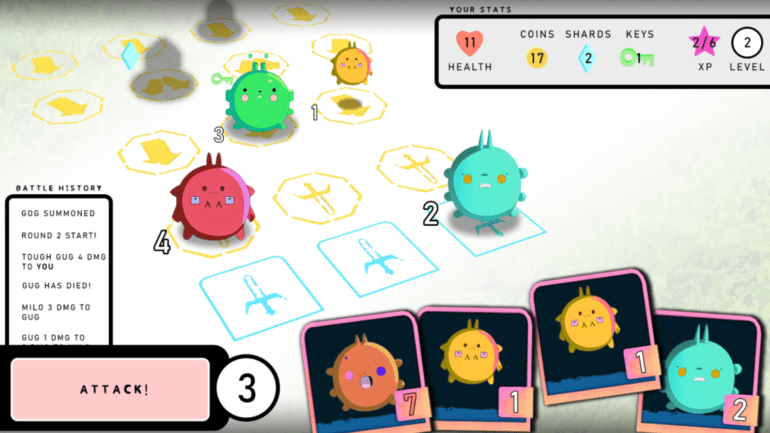TL;DR:
- MLC raises $2.2M for AI-driven game personalization tech.
- Focuses on core game systems rather than content.
- Co-founders Brestnichki and Fussell lead the innovative initiative.
- Aims for player-driven, interactive gaming experiences.
- Plans to offer an SDK for developers to design sandbox-like interactions.
- MLC envisions real-time code generation for games.
- Inaugural game, a collectible card game, serves as a testbed.
- Emerges as a pioneering spin-off from INSAIT, with support from ETH Zurich and EPFL.
Main AI News:
In a dynamic move set to reshape the gaming landscape, the Martian Lawyers Club (MLC) has orchestrated an impressive funding round, amassing $2.2 million to bolster their pioneering AI-infused game personalization technology. While the technology realm has seen an influx of AI applications for content generation, MLC is carving an innovative path by pivoting its focus toward the foundational systems that underpin gaming experiences. Spearheaded by Fly Ventures with key contributions from System.One, Amar Shah, a luminary co-founder of Wayve and Charm Therapeutics and Dhyan Ventures, the pre-seed funding underscores MLC’s transformative vision.
At its helm, Kamen Brestnichki (CEO) and Levi Fussell (CTPO), both alumni of the University of Edinburgh, initiated MLC. While Brestnichki pursued machine learning at UCL for his Master’s degree and subsequently engaged with Bulgaria’s AI-centered INSAIT tech institute, Fussell is diligently progressing through his PhD in Computer Graphics and Machine Learning. Notably, Fussell’s expertise extends to significant research roles at acclaimed entities Ubisoft and Adobe.
Central to MLC’s mission is the ambitious endeavor to unravel the conundrum of video game personalization. In a departure from the conventional approach of augmenting visual and narrative aspects, Brestnichki asserts, “We believe it’s actually the systems — the things that provide agency to the player and allow them to act in the game and have the game respond back, which actually unlock personalization.”
Echoing this philosophy, MLC envisions games transcending the conventional role of mere narratives to metamorphose into interactive conversations. This paradigm shift entails players actively shaping the course of the game, with responses not confined to preconceived trajectories. This innovative vision holds immense promise in circumventing the existing limitations of game personalization, frequently bound by resource constraints. Fussell aptly elucidates the crux of the challenge: “Developers would love to create 1,000s of functional items in a game, for example, that’s just not feasible within a reasonable budget.”
MLC’s groundbreaking solution lies in its forthcoming Software Development Kit (SDK), a digital crucible that empowers developers to ideate and experiment freely while being liberated from the arduous task of creating every in-game interaction from scratch. This SDK’s dynamic versatility will extend to confining the scope of the generative AI’s impact, ensuring coherence within game parameters.
Contrary to the existing norm where games come bundled with exhaustive code, MLC envisions an evolution towards real-time code generation. Fussell’s futuristic narrative posits, “Imagine that instead, you get Baldur’s Gate and it’s only 10 gigabytes and the code to actually make the game run is built in real time.” However, he candidly acknowledges that realizing this vision necessitates significant ongoing research.
MLC is buoyed by the increasing embrace of procedurally generated game environments by developers, exemplified by games such as Spelunky, No Man’s Sky, and the forthcoming Diablo 4. These instances mirror the industry’s growing alignment with MLC’s disruptive ideology.
A testbed for MLC’s revolutionary technology is already in motion with the development of their inaugural game, a collectible card game uniquely suited to harnessing the power of their AI-driven innovation. With this substantial investment, the company is primed to expand its talent pool, seeking adept minds in game design, programming, and cloud infrastructure management.
Noteworthy is MLC’s lineage as the pioneering spin-off from INSAIT, a collaborative venture between Switzerland’s esteemed ETH Zurich and EPFL, established in 2022. This auspicious partnership alludes to MLC’s solid grounding in academia, while the name itself, generated by a sophisticated language model, succinctly encapsulates the essence of their daring pursuit. As Fussell aptly concludes, “I think the name is important because it sort of represents a few of our policies and is our values, I think, which is that what we’re doing is sort of novel and unhinged and new.” With their resolute commitment to innovation, MLC indeed emerges as a torchbearer for transformative progress in the gaming sphere.
Conclusion:
MLC’s innovative approach to game personalization through foundational systems and interactive experiences presents a paradigm shift in the gaming industry. Their SDK and vision of real-time code generation could reshape the way developers create games, enhancing player engagement and personalization potential. The substantial investment underscores the market’s recognition of MLC’s transformative potential and reflects a broader trend toward more dynamic and player-centric gaming experiences.

